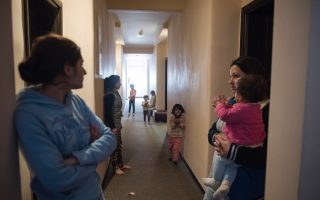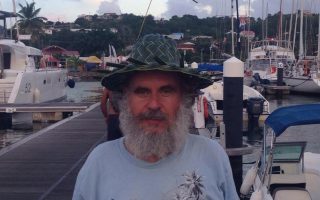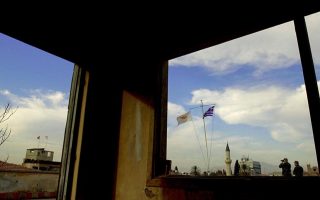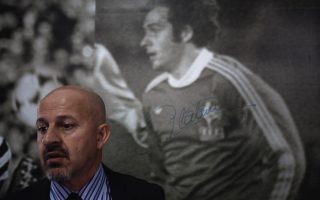The Icarian schoolboy who watched the night skies for NASA
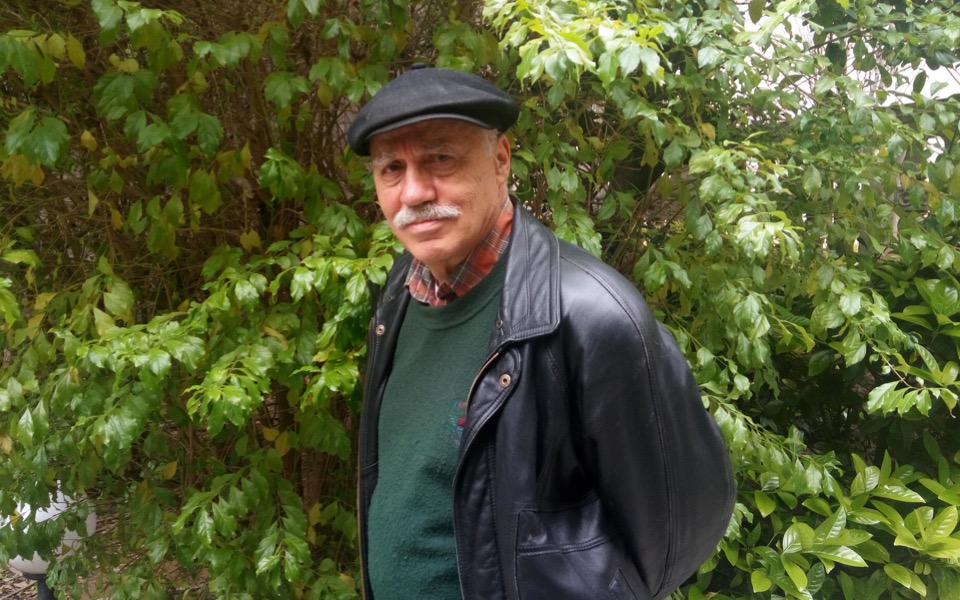
It was a fine morning in the early 1960s when a parcel arrived at the high school in Aghios Kirykos on the eastern Aegean island of Icaria. It was addressed in a broad hand “To Mr Chrysostomos Fountoulis, Meteorologist.” NASA was marked as the sender.
Chrysostomos Fountoulis, the math teacher, was stunned as he examined the parcel. Not knowing any English, he went to see his brother, a physics teacher at the same school.
“What is this? Any ideas?” They opened the parcel together and found a bunch of papers covered in incomprehensible algorithms. “What can I say? I have no idea. But Makis has some books with stuff like this at home,” responded his brother, referring to his son, a student at the local middle school, in the same building. The boy was immediately summoned to the teachers’ room and asked to explain the strange delivery.
“Is this yours?” his father and uncle asked. “Yes,” said the boy. “And what is it exactly?” “Instructions from NASA so I can monitor the American satellites when they pass over Icaria,” Makis responded, putting on the air of a space scientist. “Take it and get out of here before I wallop you and you really start seeing stars,” his disgruntled uncle Chrysostomos retorted, somewhat playfully – the Icarians, a rather independent-spirited lot, have never been distinguished for their love of Americans after all.
Makis Fountoulis is now 71 and laughs when he recounts the incident, his twinkling eyes giving us a glimpse of the mischievous schoolboy who convinced NASA he was an expert meteorologist, their man on the ground, sending his observations by post all the way to Cape Canaveral for years.
The story began with Makis’s father, who, as a physics teacher, had been assigned the task of overseeing the Hellenic National Meteorological Service’s weather station on the island, which was one of around 3,000 across the country. Dad passed the task on to his sons as they got older, because as well as being a good hobby, the job also paid a small allowance.
“My older brother got 250 drachmas, the middle one then took over and got 350 drachmas, and by the time it was my turn, I was getting 500 drachmas a month,” remembers Makis. “We monitored the station at 8 in the morning, 2 in the afternoon and 8 at night. We would observe the clouds, record their quality and type, how high they were, the speed of the wind, the waves, visibility etc.” The observations were then sent to Athens in coded telegrams. Makis did this from his first year of middle school until his second of high school and used the money he saved to buy his first radio, a Philips transistor, in December 1959, paying for it in 10 installments of 250 drachmas each.
In addition to his love for all things meteorological, his father had also instilled the boys with a love of astronomy.
“I remember him reading to us on our summer holidays from a book called ‘The Universe,’ about the mythology of the constellations,” says Makis.
His father was concerned that the boys would never learn English without a teacher on the island and so found another solution to formal tuition. “He asked this gangster, an Icarian who had been deported from America and returned to the island, to teach me English. He taught me Chicago slang, but I did learn something along the way,” Makis says, outlining the roots of his later evolution.
“Corresponding was very fashionable at the time. I responded to advertisements offering stuff for free all the time. I wrote away for one-month free subscriptions to Time and Life magazines. It was in one of those that I read NASA was looking for people to monitor their satellites all over the world,” remembers Makis. “I wrote to them in English saying that I was a meteorologist. Indeed, they sent me a bunch of books in cardboard boxes for condensed milk, thick as phone books, with instructions on how to spot the satellites, how to tell them apart from the others, special forms that I had to fill in for the service etc. They even provided stamps so I wouldn’t have to pay the postage myself. My observations were sent by post because they weren’t in a rush. They just wanted confirmation of their own observations.”
There was no money to be made, but the schoolboy enjoyed the task and did it with enthusiasm. “I liked it because I felt I was part of something, even though I didn’t know what that something was exactly,” he recounts.
He remembers panicking once when he watched a satellite disappear into Orion’s Belt. He hastened to inform NASA of his fears, but desisted from conveying his suspicion that the satellite had been shot down by the Soviets. Some weeks later he received assurances from NASA that the satellite was just fine. It had probably drifted into the shadow of a star.
Makis’s service with NASA ended when he finished school and left the island for Athens, where he studied veterinary medicine before moving to the UK, where he specialized in animal husbandry. Yet years later, he still finds himself looking up at the sky every once in a while. On January 30, at precisely 6.40 p.m., like thousands of Greeks, Fountoulis was on the rooftop of his apartment building looking out for the International Space Station as it passed over Athens.

